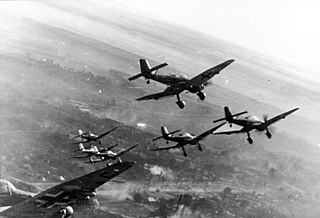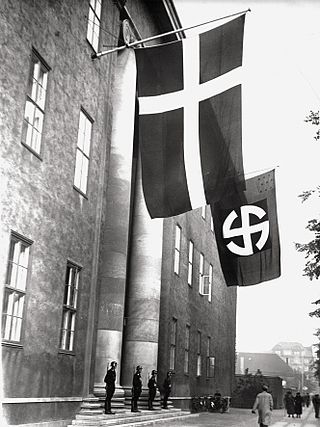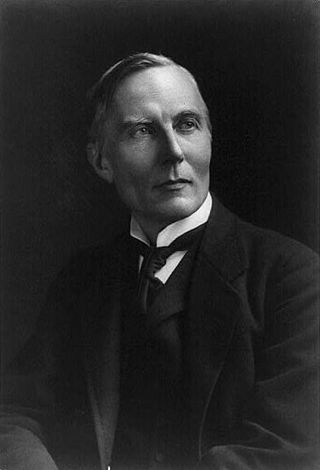Related Research Articles

The Sinti are a subgroup of Romani people. They are found mostly in Germany, France and Italy and Central Europe, numbering some 200,000 people. They were traditionally itinerant, but today only a small percentage of Sinti remain unsettled. In earlier times, they frequently lived on the outskirts of communities.

The European theatre of World War II was one of the two main theatres of combat during World War II, taking place from September 1939 to May 1945. The Allied powers fought the Axis powers on both sides of the continent in the Western and Eastern fronts. There was also conflict in the Scandinavian, Mediterranean and Balkan regions. It was an intense conflict that led to at least 39 million deaths and a dramatic change in the balance of power in the continent.

Despite Dutch neutrality, Nazi Germany invaded the Netherlands on 10 May 1940 as part of Fall Gelb. On 15 May 1940, one day after the bombing of Rotterdam, the Dutch forces surrendered. The Dutch government and the royal family relocated to London. Princess Juliana and her children sought refuge in Ottawa, Canada until after the war.
This is a selected bibliography and other resources for The Holocaust, including prominent primary sources, historical studies, notable survivor accounts and autobiographies, as well as other documentation and further hypotheses.

The Germanic SS was the collective name given to paramilitary and political organisations established in parts of German-occupied Europe between 1939 and 1945 under the auspices of the Schutzstaffel (SS). The units were modeled on the Allgemeine SS in Nazi Germany and established in Belgium, Denmark, the Netherlands, and Norway—population groups who were considered to be especially "racially suitable" by the Nazis. They typically served as local security police augmenting German units of the Gestapo, Sicherheitsdienst (SD), and other departments of the German Reich Security Main Office (RSHA), rendering them culpable for their participation in Nazi atrocities.

Herbert Albert Laurens Fisher was an English historian, educator, and Liberal politician. He served as President of the Board of Education in David Lloyd George's 1916 to 1922 coalition government.

Jewish resistance under Nazi rule took various forms of organized underground activities conducted against German occupation regimes in Europe by Jews during World War II. According to historian Yehuda Bauer, Jewish resistance was defined as actions that were taken against all laws and actions acted by Germans. The term is particularly connected with the Holocaust and includes a multitude of different social responses by those oppressed, as well as both passive and armed resistance conducted by Jews themselves.
Robert Owen Paxton is an American political scientist and historian specializing in Vichy France, fascism, and Europe during the World War II era. He is Mellon Professor Emeritus of Social Science in the Department of History at Columbia University. He is best known for his 1972 book Vichy France: Old Guard and New Order, which precipitated intense debate in France, and led to a paradigm shift in how the events of the Vichy regime are interpreted.

The Belgian Resistance collectively refers to the resistance movements opposed to the German occupation of Belgium during World War II. Within Belgium, resistance was fragmented between many separate organizations, divided by region and political stances. The resistance included both men and women from both Walloon and Flemish parts of the country. Aside from sabotage of military infrastructure in the country and assassinations of collaborators, these groups also published large numbers of underground newspapers, gathered intelligence and maintained various escape networks that helped Allied airmen trapped behind enemy lines escape from German-occupied Europe.
Holocaust survivors are people who survived the Holocaust, defined as the persecution and attempted annihilation of the Jews by Nazi Germany and its allies before and during World War II in Europe and North Africa. There is no universally accepted definition of the term, and it has been applied variously to Jews who survived the war in German-occupied Europe or other Axis territories, as well as to those who fled to Allied and neutral countries before or during the war. In some cases, non-Jews who also experienced collective persecution under the Nazi regime are considered Holocaust survivors as well. The definition has evolved over time.

Holocaust trains were railway transports run by the Deutsche Reichsbahn and other European railways under the control of Nazi Germany and its allies, for the purpose of forcible deportation of the Jews, as well as other victims of the Holocaust, to the Nazi concentration, forced labour, and extermination camps.

The Reichskommissariat Niederlande was the civilian occupation regime set up by Germany in the German-occupied Netherlands during World War II. Its full title was the Reich Commissariat for the Occupied Dutch Territories. The administration was headed by Arthur Seyss-Inquart, formerly the last chancellor of Austria before initiating its annexation by Germany.
Holocaust studies, or sometimes Holocaust research, is a scholarly discipline that encompasses the historical research and study of the Holocaust. Institutions dedicated to Holocaust research investigate the multidisciplinary and interdisciplinary aspects of Holocaust methodology, demography, sociology, and psychology. It also covers the study of Nazi Germany, World War II, Jewish history, antisemitism, religion, Christian-Jewish relations, Holocaust theology, ethics, social responsibility, and genocide on a global scale. Exploring trauma, memories, and testimonies of the experiences of Holocaust survivors, human rights, international relations, Jewish life, Judaism, and Jewish identity in the post-Holocaust world are also covered in this type of research.

German–Dutch relations are diplomatic, military and cultural ties between the bordering nations of Germany and the Netherlands. Relations between the modern states started after Germany became united in 1871. Before that the Netherlands had relations with Prussia and other, smaller German-speaking nations. Both countries are full members of the Council of Europe, the European Union and NATO.
Robert Ian Moore is a British historian who is Professor Emeritus of History at Newcastle University. He specialises in medieval history and has written several influential works on the subject of heresy. Moore was a pioneer in the UK of the teaching of world history to undergraduate students, has published numerous papers on comparative world history, and is series editor of the Blackwell History of the World.
Konrad Kwiet is a historian and scholar of the Holocaust. He is currently Pratt Foundation Professor at the University of Sydney and Resident Historian at the Sydney Jewish Museum. He has worked in universities, museums and research centres around the world, including Heidelberg, Israel, Washington DC, Oxford and Berlin.

Various kinds of clandestine media emerged under German occupation during World War II. By 1942, Nazi Germany occupied much of continental Europe. The widespread German occupation saw the fall of public media systems in France, Belgium, Poland, Norway, Czechoslovakia, Northern Greece, and the Netherlands. All press systems were put under the ultimate control of Joseph Goebbels, the German Minister of Propaganda.

The Holocaust in the Netherlands was organized by Nazi Germany in occupied Netherlands as part of the Holocaust across Europe during the Second World War. The Nazi occupation in 1940 immediately began disrupting the norms of Dutch society, separating Dutch Jews in multiple ways from the general Dutch population. The Nazis used existing Dutch civil administration as well as the Dutch Jewish Council "as an invaluable means to their end".
Shearer Carroll West is a British-American art-historian and university administrator serving as the Vice-Chancellor of the University of Leeds since 2024. She was the Vice-Chancellor of the University of Nottingham from 2017 to 2024.
Maureen Carroll is a Canadian archaeologist and academic. She is the Chair in Roman Archaeology at the University of York.
References
- ↑ "Moore, Bob, Professor". www.sheffield.ac.uk. 2024-07-16. Retrieved 2024-12-15.
- ↑ "Dr. Bob Moore - United States Holocaust Memorial Museum". www.ushmm.org. Retrieved 2024-12-15.